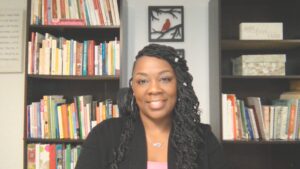
Grief does not only surface because of death. Grief surfaces because of significant loss or the failure to obtain something or someone significant to you. There are all types of loss. You can experience a loss in a relationship even when you are still actively in the relationship. There can be a loss of trust, sense of safety, commitment, time, connection, hopes, dreams, and a loss of beliefs that you once held as a truth. You can experience grief from a relationship that you never had or had from a distance. Grief can be experienced when you lose a job or change a position within the job. It can be experienced when you or a loved one moves, or when there is a change in life circumstances. These are all non-death losses. Non-death losses are often private and go unacknowledged. Sometimes when we are grieving non-death losses, we don’t even connect with the fact that we are experiencing grief. We may find ourselves saying things like I’m sad, frustrated, angry, or overwhelmed, and I don’t know why, or we can pinpoint the reason and still not connect with the fact that grief is the cause of these emotions.
When we experience a non-death loss, we hold in the strong emotions and responses because it’s hard to admit that we have been affected by the loss. Allowing the grief to go unacknowledged may lead to intense sadness that doesn’t improve, we may avoid getting close to others or avoid allowing the relationships we have to deepen. We may experience bitterness and resentment and start to feel detached. It becomes natural to put on this tuff persona, because we don’t want to be vulnerable. We fall into the trap of denial, I’m ok, that didn’t bother me, it is what it is or whatever mindset. The work that I do with some of my clients is to help them to recognize that a lot of the pain, anxiety, and depression they are battling stems from unresolved grief of non-death losses.
When we experience grief due to a non-death loss, we need to take the same approach as we would if it was grief due to a death. We need to give ourself permission to grieve, and show the same kind of love, gentleness, and patience. We need to acknowledge the importance and value of what or who was lost and the impact it has had on our life. We need to take into consideration the secondary losses that may have surfaced and the role we may have played in the loss.
Below are some questions that may be helpful as you navigate the loss experience:
- Who or what did I lose?
- How was I affected because of this loss?
- Is this loss restricting my day-to-day living, if so, how?
- Has this loss hindered, disrupted or changed in any way the current relationships I have or future relationships I might have?
- Am I comparing my loss to others and in doing so minimizing what I am feeling?
- Am I being honest with myself about the loss and the role I may have played?
- What do I want my life to be like moving forward and is there anything that will hinder me from accomplishing this?
- How has this loss affected how I connect with God or what I think about God?
- Am I open to healing and recovering?
When you answer these questions, you also need to ask yourself what do I want to do with the knowledge that I now have. You need to explore and connect with the other emotions that may come into play because of this awareness and give yourself the permission to express what is needed.
Grief no matter when and how it surfaces is something that needs to be acknowledged, expressed, and released. When you allow yourself to grieve you allow yourself to heal.
copyright © 2023. All rights reserved.

Thank you thank you thank you! God bless you for this ministry. It truly blessed my soul tonight
You’re welcome! Glad you were blessed!